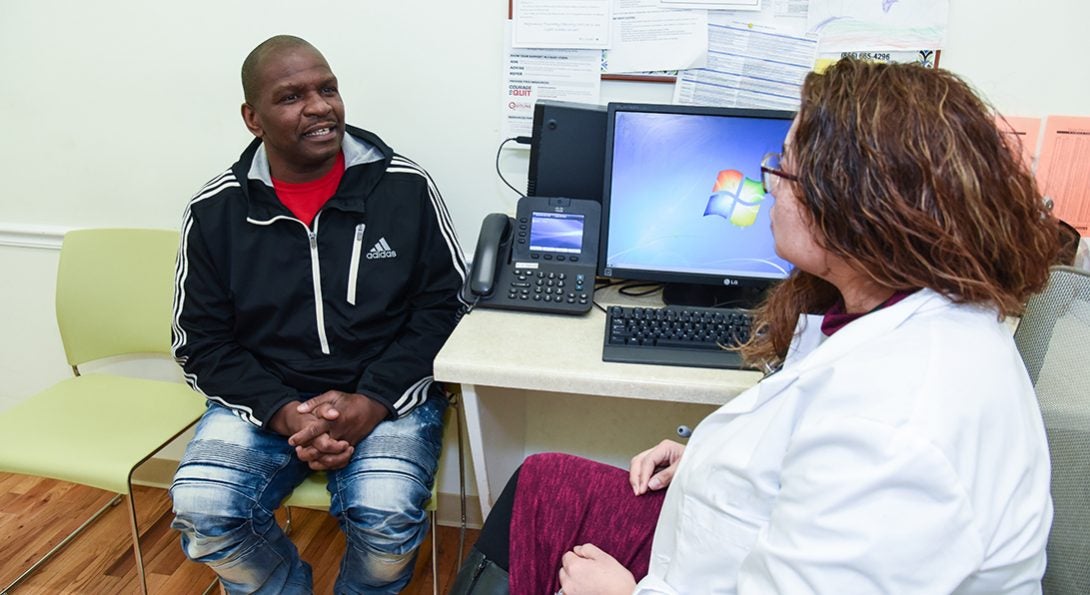UIC Nursing leads initiative to care for recently incarcerated

body copy
In an effort to provide better continuity of healthcare for the recently incarcerated, Illinois Department of Corrections detainees who are released into two transition centers will be scheduled for appointments at the nurse-led UI Health Mile Square Health Center clinic in Humboldt Park, thus establishing UIC as the medical home for this vulnerable population.
The goal of the initiative, which is led by the UIC College of Nursing, is to reorient people recently released from custody to the health care system and reduce the poor health outcomes experienced by this population.
“Corrections centers are required to provide for an offender’s health care needs while he or she is in custody, from colds and flu to more complex chronic and acute conditions,” said Susan Corbridge, associate dean of practice and community partnerships at the UIC College of Nursing who is spearheading the program. “But that access ends when the individual is released, while the need for medication, counseling, health literacy education and disease management never goes away.”
Since the program began in March, the two adult transition centers, located in Cook County, provide residents with transportation on Tuesday and Thursday mornings to the UI clinic in Humboldt Park, 3240 W. Division St., where nurse practitioners provide comprehensive assessments to begin addressing the individual’s medical needs, both physical and mental. The goal is to schedule such appointments within a week of their release.
As of the most recent count on Dec. 10, the clinic had seen 112 patients from the two transition centers.
Previously, residents were transported to emergency rooms in Chicago for primary care, which program leaders say was an inefficient use of resources.
Introducing former offenders to affordable and comprehensive primary care services during their transition back to community life can help ensure this high-risk population is empowered to get care, Corbridge said. Formerly incarcerated individuals have high rates of certain chronic conditions, such as asthma, diabetes and hypertension, for example, and these conditions can often include substance abuse and mental illness.
“This program is about reaching an at-risk, overlooked population with options for getting the high-quality care they need,” Corbridge said.
The Humboldt Park clinic is one of the few federally qualified health centers in Chicago practicing an integrated health model by offering mental health services alongside primary care, something Elizabeth Raleigh says is important for many individuals who have been incarcerated.
Raleigh, director of business development, clinical operations and community relations at the UIC College of Nursing, works with Corbridge and the clinic to run the navigation program for former offenders.
“It was important that we establish this program in a way that meets the needs of these specific patients and helps them take advantage of the clinic as their medical home,” Raleigh said. “As we navigate this group of patients to medical care, we need to be vigilant about understanding their background, including their primary language, and what type of care is going to be most beneficial.”
UIC Nursing initiatives extend to Cook County and statewide corrections
This work is part of a larger effort by the UIC College of Nursing to address health disparities that exist alongside the criminal justice system. Additional initiatives include health care quality improvement projects throughout state corrections centers.
Students from the College of Nursing engage with individuals who are detained in Cook County through health education and wellness programs at the jail, and clinic staff engage with recently released individuals at the West Town Strength and Wellness Center, which is run by the Cook County Sheriff’s Office.